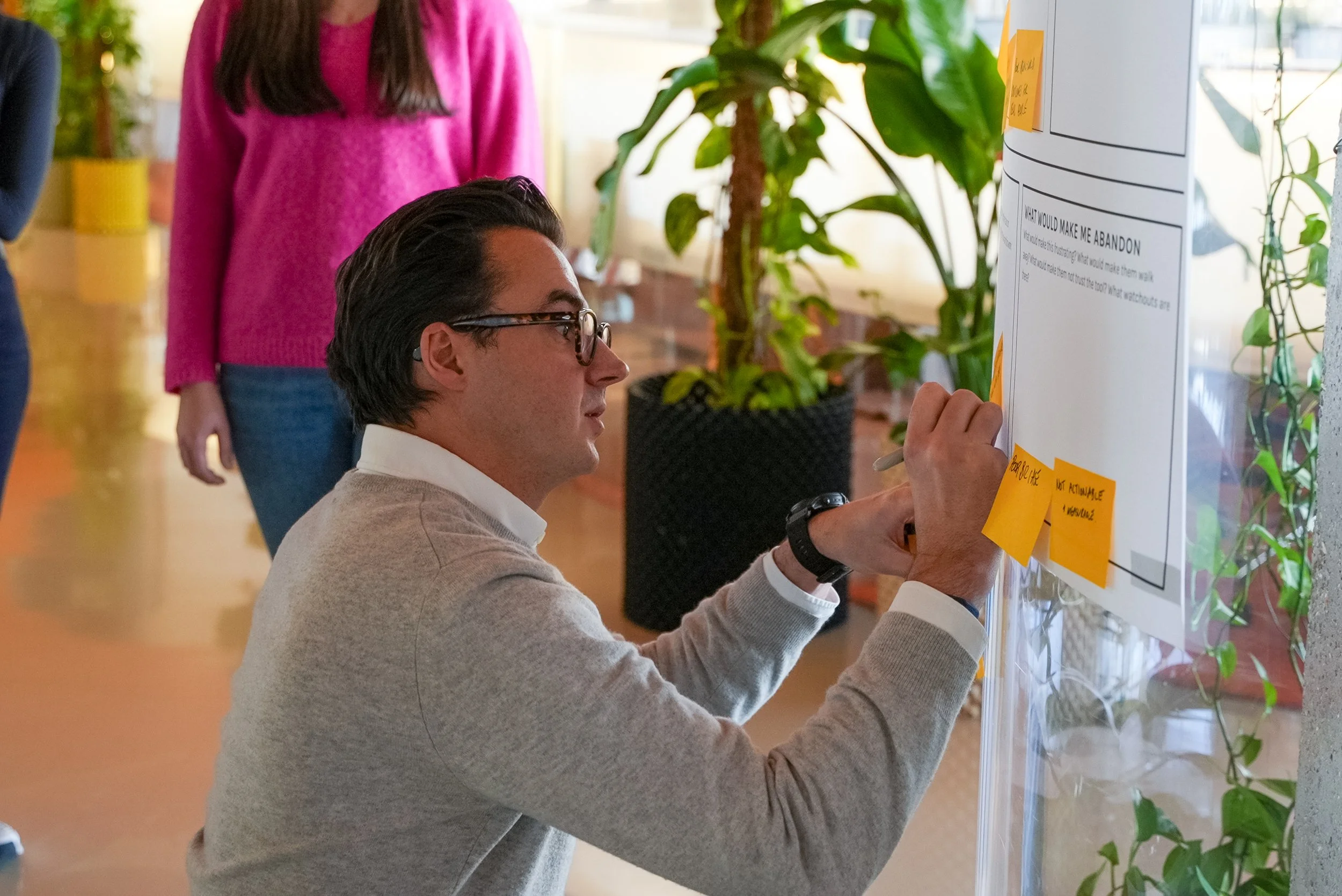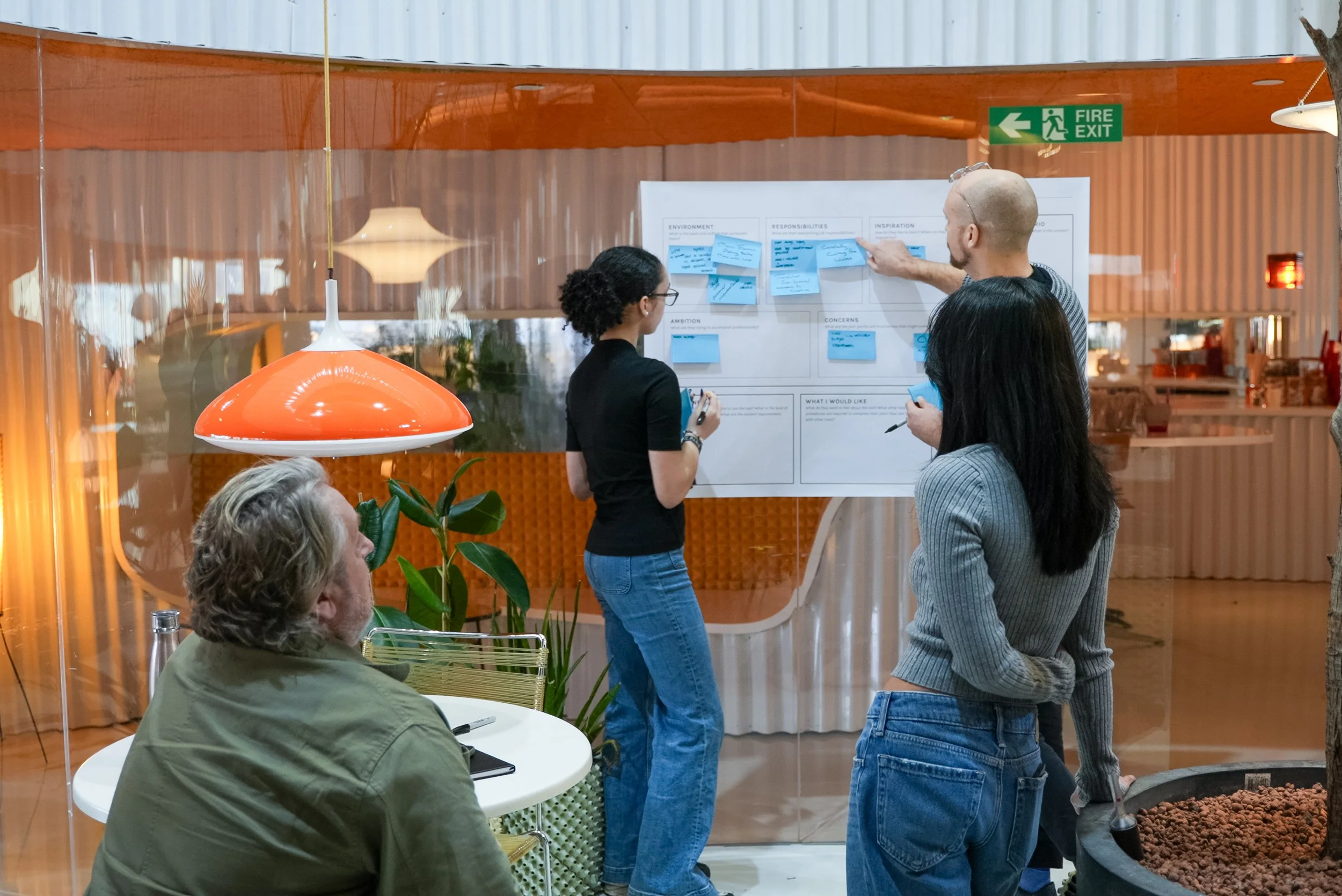Designing for children’s well-being
Businesses that champion children’s well-being can create better products and boost brand value. From February to November 2024, I contributed to developing UNICEF’s design guide for businesses in children’s digital play.
INNOVATION • UX DESIGN • DIGITAL DESIGN
-
The Responsible Innovation in Technology for Children (RITEC) project is a collaboration between UNICEF and The LEGO Group, and funded by The LEGO Foundation. The project’s objective is to develop, with children from around the world, a framework that maps how the design of children’s digital experiences affects their well-being.
How can we help businesses create digital play experiences that prioritize children’s well-being?
How can we provide designers with practical tools for supporting children’s well-being into their design process?
-
Contributed to the development of the RITEC Design Toolbox through in-person and virtual co-design sessions.
Participated alongside industry experts and academic researchers to support the translation of the RITEC research into actionable tools.
Helped build practical resources grounded in the RITEC-8 framework (safety and security; diversity, equity and inclusion; autonomy; emotions; competence; relationships; creativity; and identities)
-
The RITEC Design Toolbox provides designers with practical tools for incorporating support for children’s well-being into their design process.
It includes four components:
FAQs – Answers to key questions about the toolbox
Summary for Executives – A business case for designing for children’s well-being
Infographic Posters – The RITEC-8 Framework and the RITEC Play World
Interactive Card Deck – Game design features that research suggests can promote well-being in digital play
Download the toolbox at unicef.org
The RITEC Design Toolbox was developed by Shuli Gilutz, Programme Officer, Child Rights and Digital Business, and Josianne Galea Baron from the UNICEF Business Engagement and Child Rights team (UNICEF Programme Group).
With insights and collaboration across a wide range of stakeholders in industry, civil society, and academia, including: Jon Mason (Jollywise), Lady San Pedro (Mrs. Wordsmith), Luc Delany (K-ID), Chris Lindgren and Petter Karlsson(TocaBoca), Kathryn Hymes (University of Oxford), Nathan Sawatzky (Supercell), Anna Wendelin, Ulrika Silfverstolpe (Mojang), Corinne Brenner (Killer Snails), Tobie Abad (TAKTYL Studios), Kiley Sobel (Duolingo), Tif Gagnon and Maria Janelli (Scratch Foundation), Barbara Leal (Futureplay Games), Stephen Boustred (Ubongo), Kimberly Voll (Thriving in Games Group / Brace Yourself Games), Raul Gutierrez (Tinybop Inc.), Glenn Gillis (Sea Monster, Games for Change Africa), Sabine Witting and Emma Day (Tech Legality), and Sonia Livingstone (Digital Futures for Children, LSE).
Project collaborators include: Jan L. Plass (New York University), Fiona Scott (University of Sheffield), Daniel Johnson (Queensland University of Technology), Amanda Third (Western Sydney University), Bruce Homer (The Graduate Center, CUNY), Sarah Jacobstein and Michael Preston (Joan Ganz Cooney Center), Christopher Payne, Marie Enemark Olsen, Mathilde Heegaard Bausager, Declan Henesy, Adam Ingle, Elizabeth Milovidov (The LEGO Group), and Lise Borgstrøm Henriksen (The LEGO Foundation).
Additional contributions and reviews were provided by UNICEF: Daniel Kardefelt-Winther, Afrooz Kaviani Johnson, Ida Hyllested, Stacie Finnegan, Jonas Ginge Andersen, Philip Toscano, Adam Cathro, and Nicola Dillon.
Learn more and download the toolbox at unicef.org





















